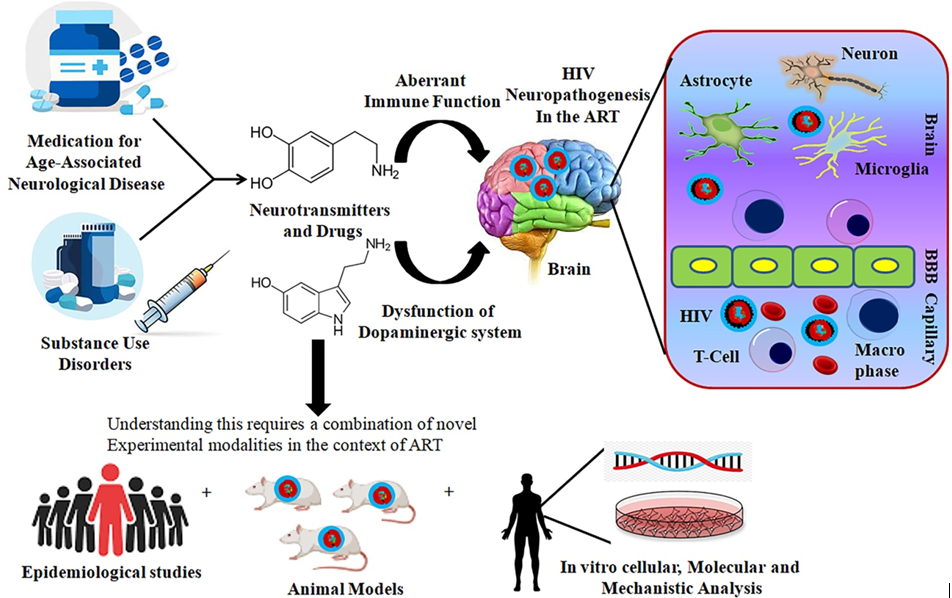Preventive measures for neurological complications in HIV: Assessing current therapeutic strategies

DOI:
https://doi.org/10.62110/sciencein.btl.2025.v12.1162Keywords:
HIV, AIDS, Neurocognitive problems, meningitis, blood-brain barrier, antiretroviral therapyAbstract
Globally, more than 78 million people have acquired HIV, and more than 40 million of those individuals are currently afflicted. About 9% of them have neurological issues. In the great majority of instances, accurate diagnoses may be obtained by doing clinical and neurodiagnostic exams with a thorough understanding of the spectrum of neurologic disorders that could affect these people. Our current knowledge of how HIV-related neurological disorders develop is still incomplete, which limits the range of therapy options. Brain damage, however, may have its root cause in alterations in the dendritic spine, according to a number of studies. HIV is a major global health concern, and for people who are infected, neurological symptoms is a major source of concern. HIV-positive individuals still have a high risk of neurological issues even with the widespread availability and efficacy of antiretroviral drugs. Thus, further preventive measures to protect HIV patients from developing neurological issues should be given top priority in the 2030 HIV vision. Thus, neurocognitive deterioration and HIV-associated dementia are often correlated with HIV infection. The reader is intended to get a brief overview of the neurological problems that might arise from HIV infection from this article. The ways by which HIV either directly or indirectly affects the central nervous system are examined in this article.
Downloads
Published
Issue
Section
URN
License
Copyright (c) 2025 Krishnendu Adhikary, Krishnendu Ganguly, Riya Sarkar, Baisakhi Mukherjee, Debayan Chakraborty, Sohini Ganguly, Prithviraj Karak, Mrinal Acharya

This work is licensed under a Creative Commons Attribution-NonCommercial-NoDerivatives 4.0 International License.





